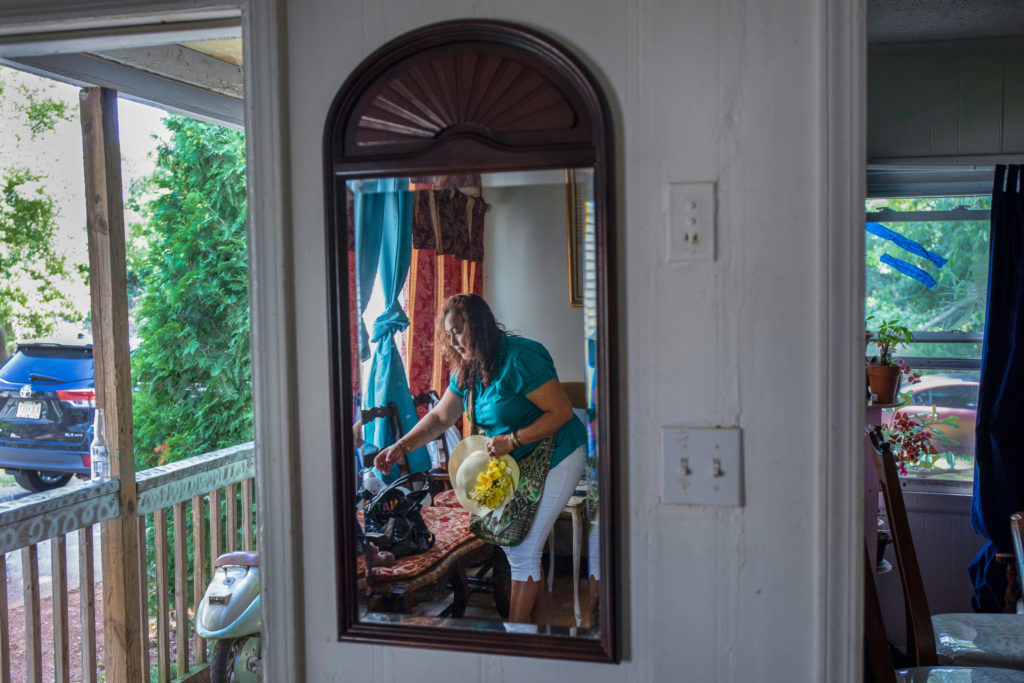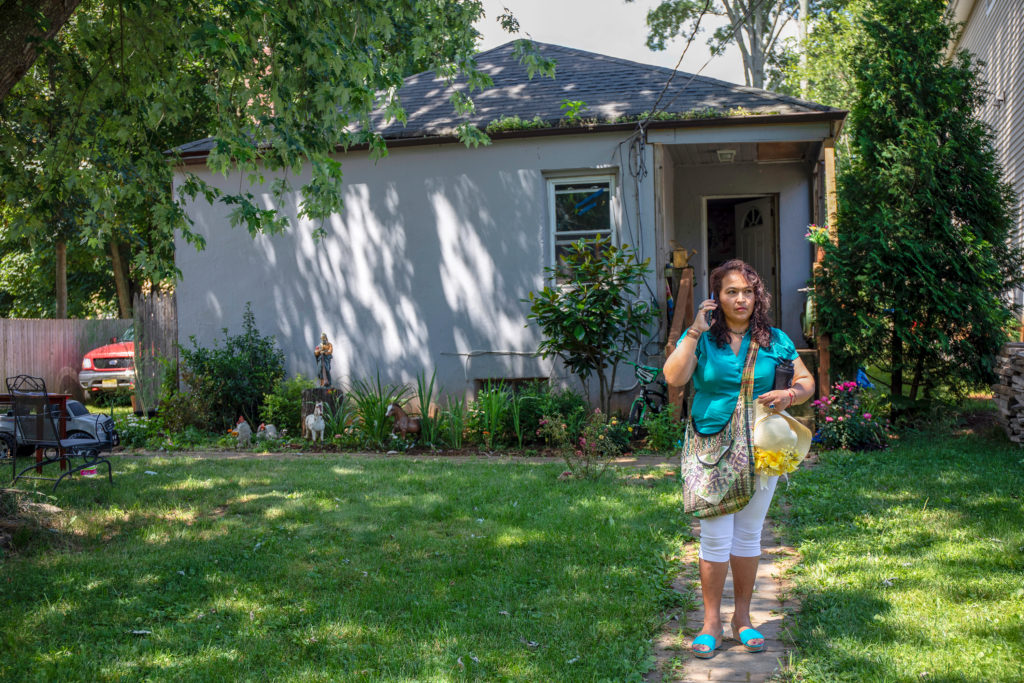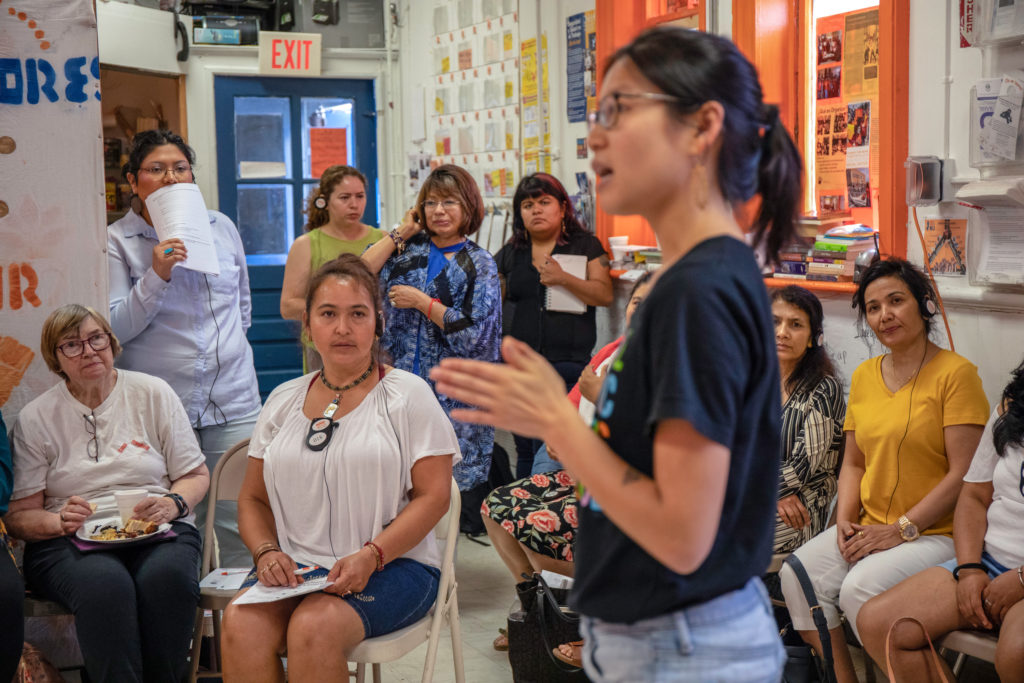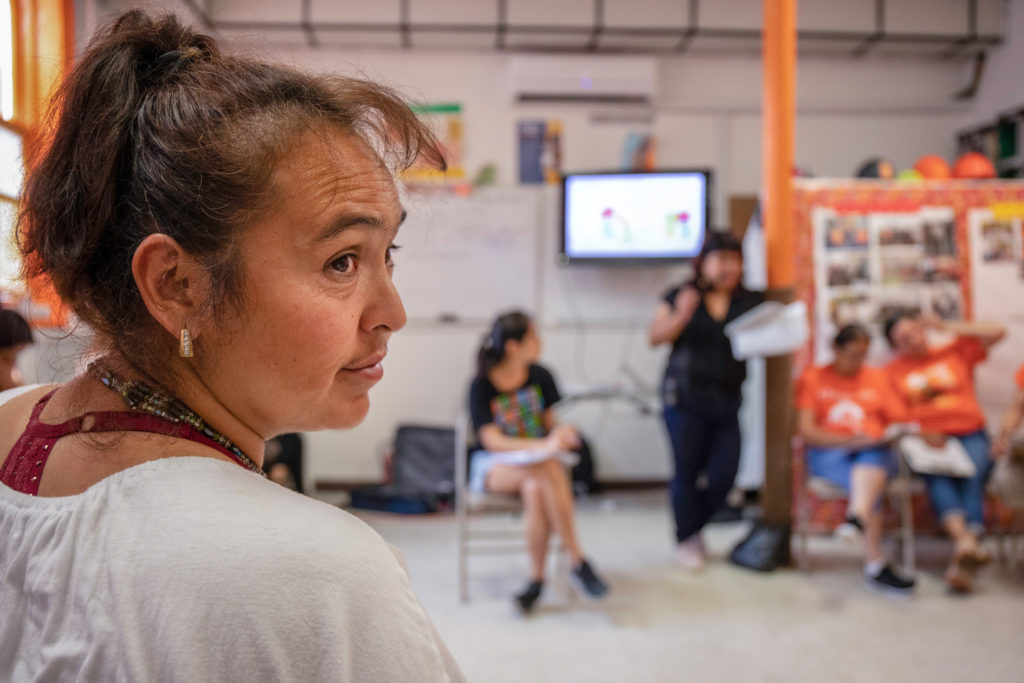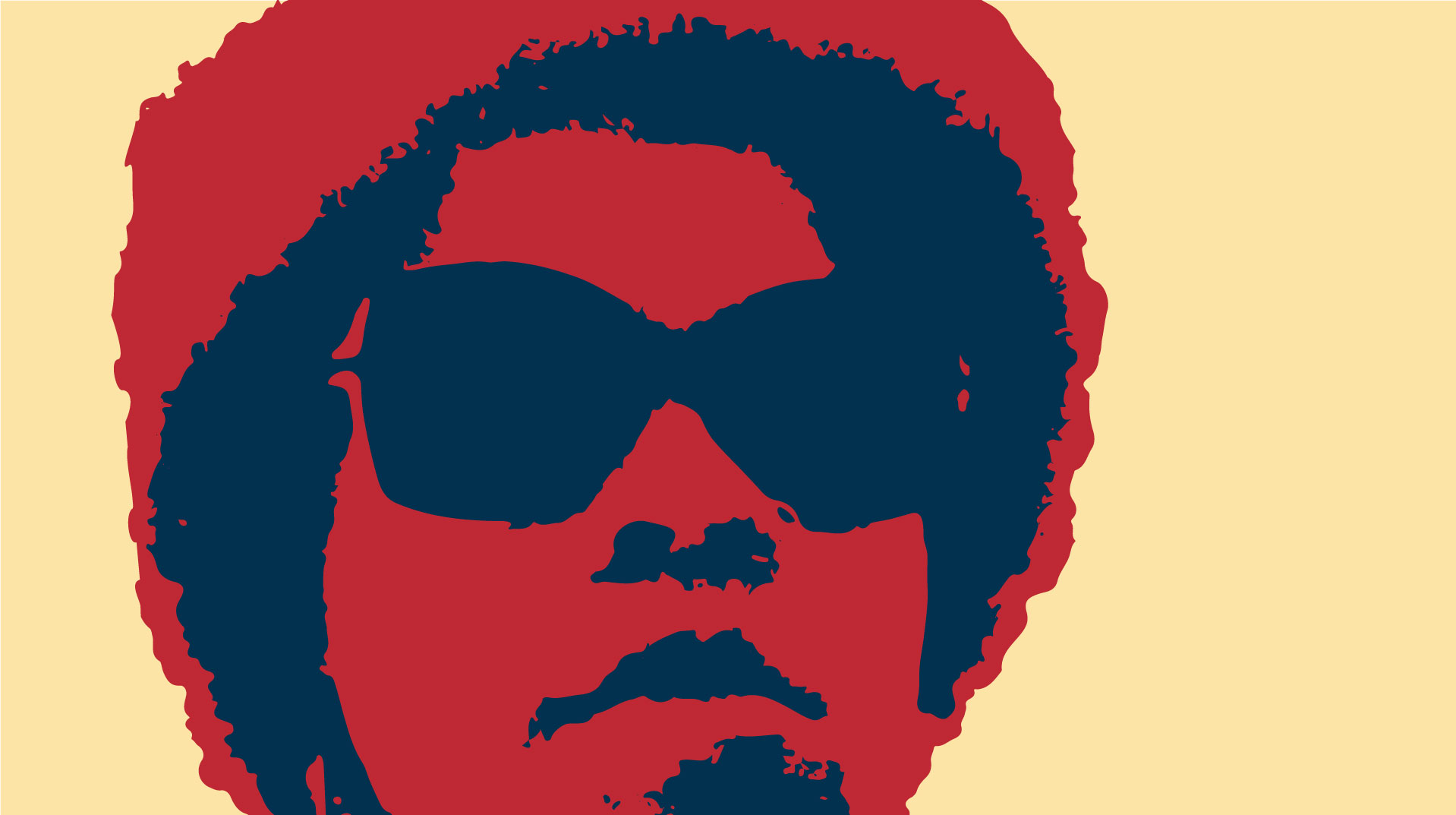…she could have been killed if she took the father of her children to court in Guatemala.
Mirian Mijangos towers over the tiny living room in the grey, shed-like house she shares with her sister in Freehold, New Jersey. In a black and white dress and open-toed red shoes, she is poised, even radiant, as she settles into a chair and recounts her experiences as a Guatemalan domestic worker.
When she arrived in Atlanta in 2008, she had only visited the States once before, accompanying her son who was 8 or 9 at the time, to a BMX bike race in California. This time though, she was alone and escaping an abusive husband.
“I was very afraid.” Her voice, still girlish at 49, breaks as she tells us that she could have been killed if she took the father of her children to court in Guatemala. Even when she landed in Atlanta she was frightened that someone would identify her. “I tried to push my hair onto my face to hide it,” Mirian says, with an embarrassed smile. From Atlanta, Mirian flew to New Jersey where her boyfriend had arranged for her to work at a horse farm with him in New Egypt, in Ocean County.
The owners of the farm bred race horses, and Mirian got the job because of her experience working with animals on her parents’ farm in Santa Rosa, Ishuatan, where, Mirian was one of 6 girls and 8 boys. On the farm, Mirian worked with horses, cows and chickens.
“All the animals had a name…I had a fondness for horses,” she recalls. A few times a week the children rode to school on horseback, the older siblings lifting the younger ones onto their saddles, and always traveling together for safety. She was just a young girl when she and her older sister, Audi, were entrusted with their father’s wilder horses.
One day the horse she was riding bolted. Audi screamed to her to grab hold of a tree as she rode beneath it on the horse. Mirian laughs joyfully as she describes hanging from a branch with both hands, her legs dangling in the air, watching her horse gallop away. Her childhood, she says, “was extraordinary and wonderful.” Years later, Audi joined Mirian on the horse farm in New Egypt, doing work they loved, though the sisters could hardly have imagined a more hostile world.


Mirian leaves her house for a day’s work.
“I knew that if the hoof of the horse got to my head, it would be over for me.”
In New Egypt, Mirian was given the task of exercising the horses. She worked nine hours a day, running out to the stables at five in the morning and taking her first meal in the afternoon. She cleaned the owners’ home once a week. The foreman at the farm noticed Mirian’s ease with the horses and moved her to a better position. She was now responsible for taming the younger, friskier horses, a move that provoked jealousy among the other Latin-American workers.
One day, a particularly frisky horse kicked her in the shin of her leg. She fell and was unable to stand up from the pain. It was a moment of paralysis and terror. The faces of her children flashed before her eyes. “I knew that if the hoof of the horse got to my head, it would be over for me.” No one came to her aid, until a Guatemalan co-worker helped her up and called the managers.
Despite her repeated pleas for an ambulance, Mirian was told that she was not entitled to one. Audi heard about the accident but the managers refused to let her go to her sister’s aid and told her to continue working until her shift ended. Mirian’s boyfriend worked night shifts, and it was not until someone woke him that they found a woman who was willing to drive her to the local hospital.
In the weeks that followed, the wound on her leg grew infected, and she could not walk. Her next visit to the hospital lasted three days, which were spent cleaning out the wound. The owners of the farm initially denied that she worked for them, and the hospital could not cover Mirian under workman’s compensation insurance. It was clear to Mirian that she mattered on the farm only for as long as she was able-bodied and strong. The accident had made her a liability to the farm owners and to herself.
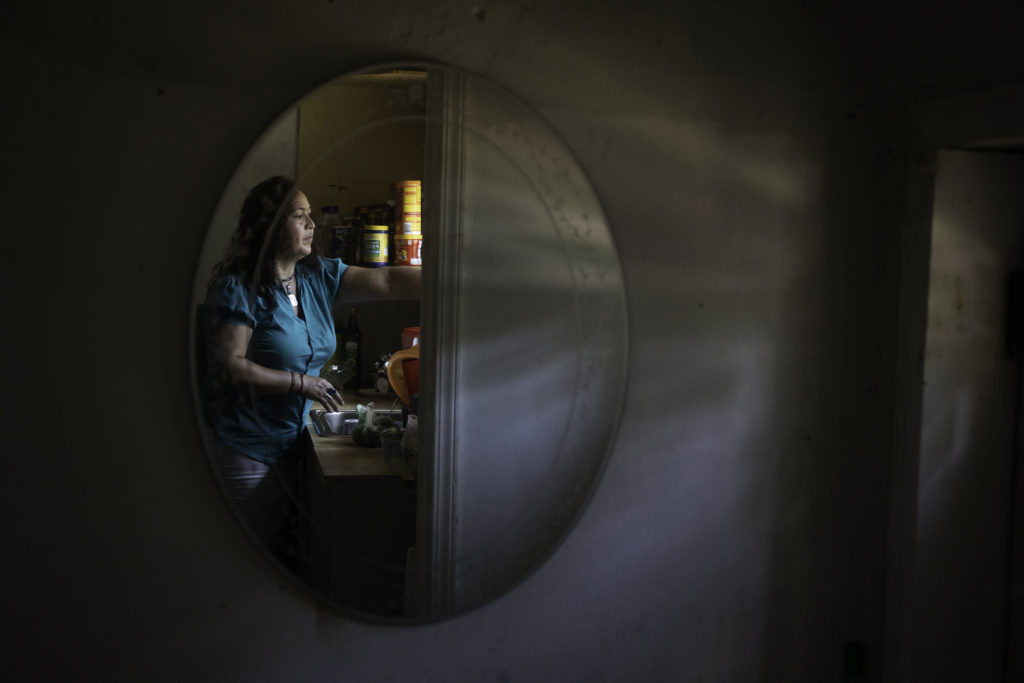
“The owner of the farm was looking for me.”
She begins to cry when she recalls what finally made her leave, “The owner of the farm was looking for me.” Her boyfriend was called up to the ‘big house’ and asked where Mirian was. He told them that she had left. Mirian hid behind a door as armed men entered their mobile home to search for her. That night, after dark, with a friend positioned as a lookout, Mirian fled the farm. A friend told her about an organization that helped immigrants and brought her to Rita Dentino, the director of Casa Freehold.

Rita Dentino, Director of Casa Freehold (seated, far left) and Mirian, at a meeting organized by the National Domestic Workers Association. 
Mirian attends a training session of the National Domestic Workers Alliance in Newark.
“I can’t sleep. I can’t eat. I need a person to be here in the daytime.”
It took Mirian nearly a year to regain her health; a lawyer at Casa Freehold was able to secure coverage for her medical costs through workman’s compensation. Yet the situation remained delicate—though she needed benefits to be treated for her wound and its complications, Mirian worried about her own safety at the hands of her old employers. She worried that they would track her down and send her back to Guatemala for fear that she might expose their hiring practices.
The decision to become a domestic worker grew out of her desperate situation and the experience she had gained cleaning the ‘big house’ at the farm. Her first position, as a live-in health aide, seemed promising enough. She was hired to take care of an 83-year-old man in his home in Colt’s Neck, New Jersey. Though the job came through Casa Freehold, both Mirian and Rita were surprised to discover that the old man lived with his wife, who was wheelchair bound. Mirian would be responsible for them both.
What Mirian experienced next speaks to the failure of federal labor laws to provide domestic workers with the same basic human rights as other workers: rights that protect them from sexual harassment and racial discrimination. Barring a few states, domestic work is the only labor in the United States today that is not protected by this provision.
Mirian was hired by the older man’s son, and she started working nights, arriving at four in the evening and leaving at nine the next morning. The day aide quit shortly after Mirian began, and her employer, who lived in a house in front of his parents’, asked her to work during the days too, until a replacement was found.
The older man grew abusive and sexually harassed Mirian’s sister when she visited. She complained to his son, who refused to believe her. Mirian began to lose sleep, fearing that she would be assaulted at night. Though she served meals to the older couple, they resented sharing their food with her. One day, the man began to chase Mirian around the room, trying to hit her with a stick. When Mirian dodged him, he threw a blender at her. She took out her phone and videotaped him so she would have evidence. She approached her employer’s wife with the video, claiming “I can’t sleep. I can’t eat. I need a person to be here in the daytime.” The woman, who was Cuban, told her, “This is why we get Latin women.”
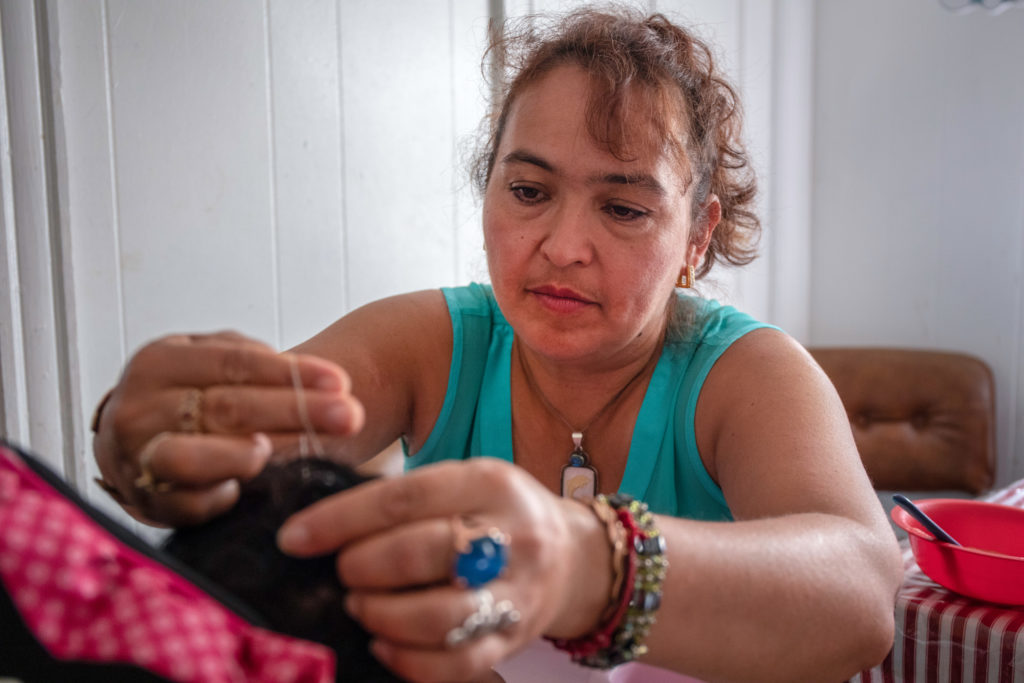
Had Mirian been associated with an agency, protections against such demands would have been built into her contract, and she would have commanded better pay and better treatment.
A couple of weeks after the man attempted to beat Mirian, she fell severely ill again from high blood pressure and lack of sleep. She left the job and began taking care of new-born twin babies two days a week and during nights. Her pay went up from four dollars an hour to twelve, though it was just a matter of time before her new employer began negotiating a lower hourly rate in exchange for more hours of work.
Another live-in health aide position lasted less than a week. Again, she was hired by the patient’s son, but the older woman she lived with refused to allow Mirian to cook for herself, and insisted she keep her food—fresh fruit and seeds she brought from home—outside the front door, on a table.
The woman resented Mirian’s free time after work. At night, when Mirian would try to do something for herself, like study English, she would ask her to massage her feet. Had Mirian been associated with an agency, protections against such demands would have been built into her contract, and she would have commanded better pay and better treatment.
Mirian has since resumed caring for the twins and cleaning homes in the Hasidic Jewish community in Lakewood. She has not returned to working as a health aide. To supplement her income, she cleans a beauty salon and babysits children in her neighborhood.
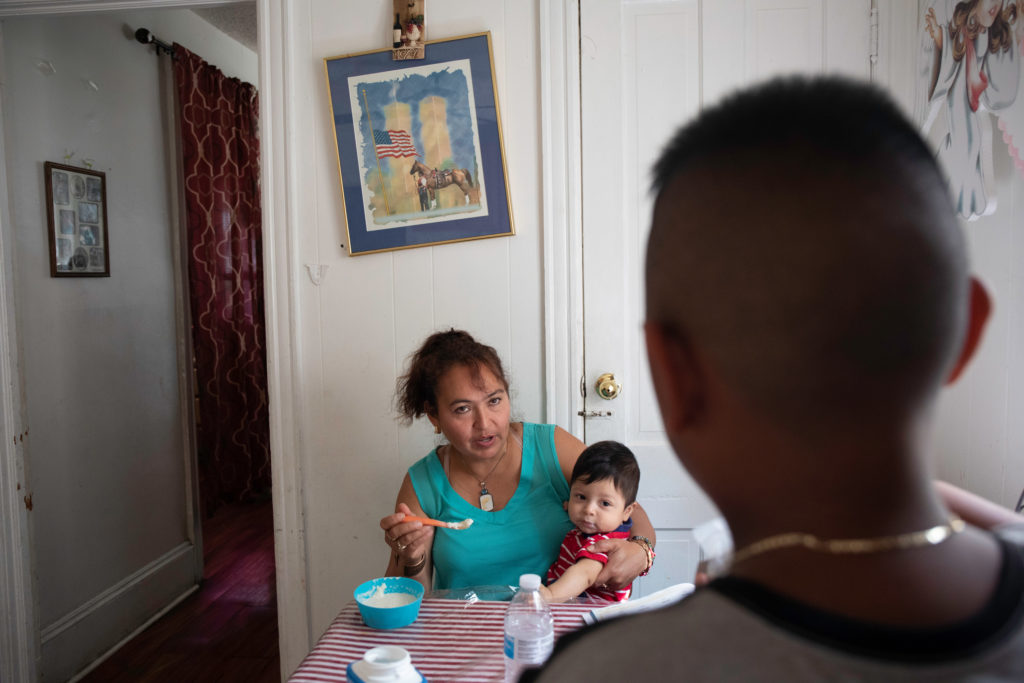
“One of the biggest things was the love with which I was received. I was afraid and now I feel protected.”
And in gratitude for the support extended to her by Casa Freehold, she sits on their Board of Directors, and conducts outreach work with day laborers in the area, by advising them of their rights. What has Casa Freehold done for her? “Muchisimo…muchisimo,” she says, batting away tears. There is laughter as she gestures toward Rita Dentino, who joined us for the interview. “One of the biggest things was the love with which I was received. I was afraid and now I feel protected. The other thing was my struggle to return to better health. It was long and hard, and we fought it together.”
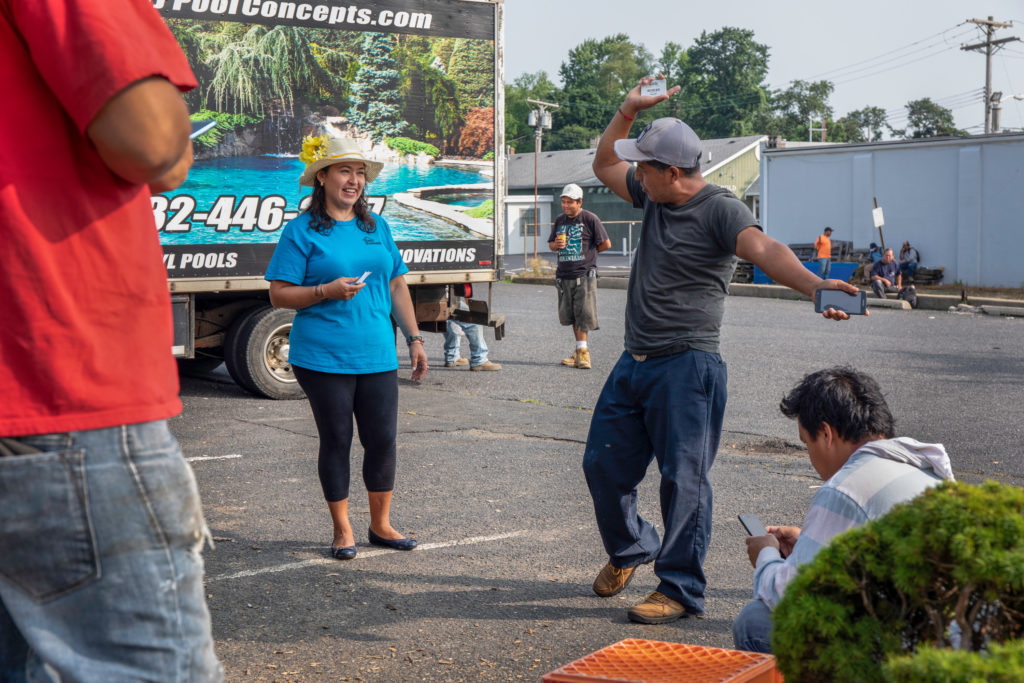
“The thing I have learned is that you cannot stay quiet. You have to open your mouth.”
“The thing I have learned is that you cannot stay quiet. You have to open your mouth. You have to join with other women.” Mirian hopes to start a Latin-Caribbean restaurant in Freehold, with her sisters and friends. They are about to sign a lease. She is glad that her son, now a young man, is in Freehold with her. Gracias a dios, she says, “thank god,” a phrase she has repeated throughout our conversation, because “There is no security for a male child in Guatemala.” When she can, she sends money to her daughter and aging parents, who remain there. I leave her house, wishing her well. We wrap up the interview because she has a graduation ceremony to attend. Her nephew has completed high school in Freehold.
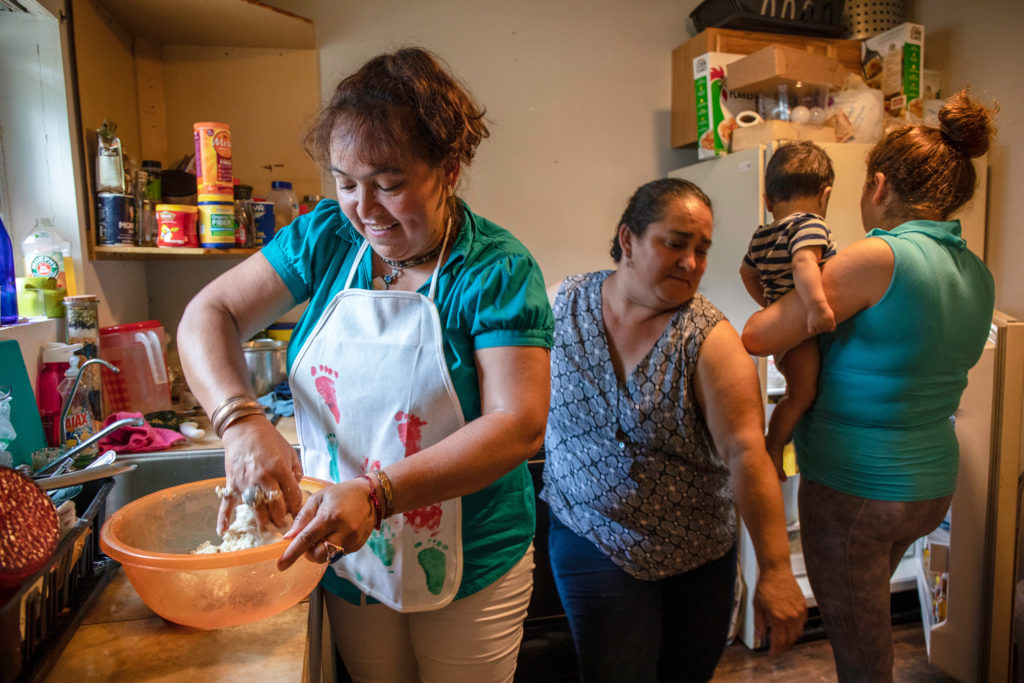
She has known ugliness —the abusive man she finally found the courage to leave—and this is a story she is ready to tell.
As I drive out of Mirian’s neighborhood, a short stretch of small houses with pretty patches of lawn, I imagine a young girl of 15, on horseback. Her brothers and sisters are beside her, some on horses of their own. One of them shares her saddle. There are 14 boys and girls in total, taking to the road outside their parents’ farm. In the wake of their exit is a cloud of dust that obscures, momentarily, their parents’ lush, fruit orchards—rows of stumpy banana trees with their broad, gleaming leaves, the custard fruit that bears down on boughs, and pineapple plants, spilling out around ripe yellow crowns.
Now the girl has grown into a woman, and she has the bearing of a horse rider, regal and tall, as she stands in Atlanta airport waiting to be interviewed. Behind her, a line of planes roar and turn on their wheels. The uniformed American officials who interview her are polite, but suspicious. Her thoughts take her to the two children she has left behind, but she remains alert. She is here today for her own sake. She answers their questions in a soft voice. She has known ugliness —the abusive man she finally found the courage to leave—and this is a story she is ready to tell.
But she has known beauty. And speed. These are hers too. These are her stories, the armament of her memory. Gracias a dios. This is her wealth.
Mirian’s story is part of a Newest Americans series for the 37 Voices Project, an initiative that combines journalism, oral history, research, and theater to change the narrative around economic vulnerability in New Jersey, one of the highest-cost states in the country.

